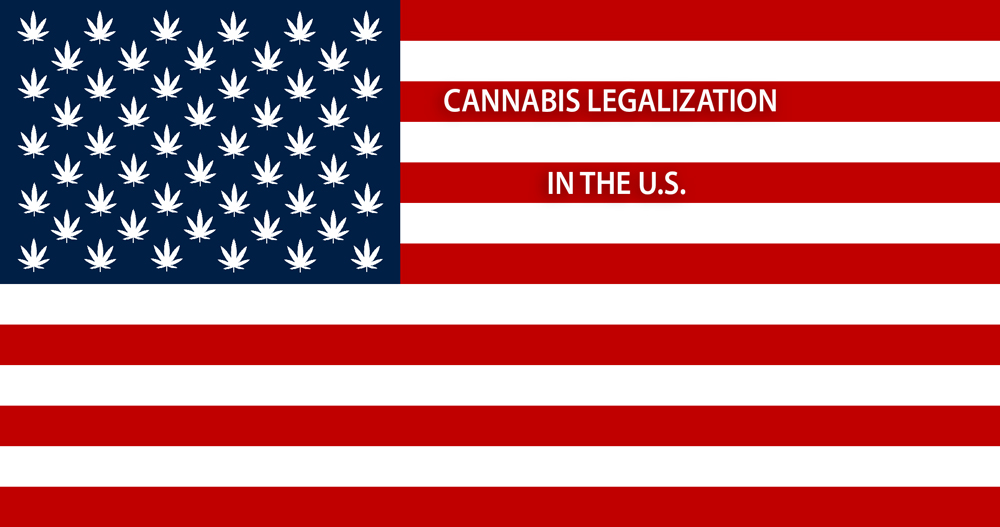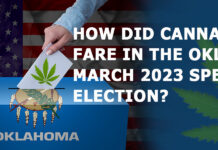U.S. Territory Of Northern Mariana Islands Legalizes Cannabis
The Northern Mariana Islands is a U.S. territory of a small group of islands in the Pacific Ocean of just around 52,000 people but it has made huge head-waves by being becoming the first American jurisdiction to legalize the sales of medical and recreational cannabis through a legislature. What is even more surprising is that it did so with the approval of a Republican-controlled government.
Republican Governor Ralph Torres signed the Taulamwaar Sensible CNMI Cannabis Act Of 2018 (the “Act”) into law on September 24, 2018. This territory is also the first U.S. jurisdiction to swing from one end of the spectrum of having all cannabis being illegal to the other end of the spectrum of allowing both medical and recreational use of cannabis.
Possession, Sales, and Home Cultivation All Legalized.
The Act legalizes the possession of up to one ounce of marijuana and up to five grams of cannabis extracts for adults 21 and older. Possession of up to 16 ounces of cannabis-infused products in solid form and up to 72 ounces in liquid form was also legalized. Adults can also register to grow up to six mature and 12 immature plants for personal use. Medical marijuana patients are allowed to grow twice as many plants.
The Act will also allow the commercial production and sale of cannabis. A CNMI Cannabis Commission must be appointed within 30 days to regulate the program. After it is formed, the commission will have 180 days to create and adopt rules for the program. Six license types will be issued including producers, testing facilities, processors, retailers, wholesalers, and lounges. Applications for licenses will be accepted once the regulations have been adopted and may not be unreasonably delayed or rejected.
Northern Mariana Islands Follows A Growing Trend In Legalizing Cannabis.
Medical marijuana is legal in 31 states.
The medical use of cannabis is legal (with a doctor’s recommendation) in 31 states and Washington DC. Those 31 states being Alaska, Arizona, Arkansas, California, Colorado, Connecticut, Delaware, Florida, Hawaii, Illinois, Maine, Louisiana, Maryland, Massachusetts, Michigan, Minnesota, Montana, Nevada, New Hampshire, New Jersey, New Mexico, New York, North Dakota, Ohio, Oklahoma, Oregon, Pennsylvania, Rhode Island, Vermont, Washington and West Virginia. The medical use of cannabis is also legal in the territories of Guam and Puerto Rico.
Recreational marijuana is legal in 9 states.
Nine states and Washington DC, have legalized marijuana for recreational use — no doctor’s letter required — for adults over the age of 21. Those nine states being Alaska, California, Colorado, Maine, Massachusetts, Nevada, Oregon, Vermont and Washington.
Conflict With Federal Law.
Under Federal law (Controlled Substances Act 21 U.S.C. 801) marijuana is designated as a Schedule I controlled substance due to the historical belief that it has a high potential for abuse, no currently accepted medical use in treatment, and lack of accepted safety for use under medical supervision.
Higher Taxes Still Remain
While the developments listed above are favorable for cannabis business, it still remains to be seen whether the Federal government will respond favorably and when favorable changes will be made to the Internal Revenue Code which treats businesses in the marijuana industry differently resulting in such business paying at least 3-times as much in taxes as ordinary businesses.
Generally, businesses can deduct ordinary and necessary business expenses under I.R.C. §162. This includes wages, rent, supplies, etc. However, in 1982 Congress added I.R.C. §280E. Under §280E, taxpayers cannot deduct any amount for a trade or business where the trade or business consists of trafficking in controlled substances…which is prohibited by Federal law. Marijuana, including medical marijuana, is a controlled substance. What this means is that dispensaries and other businesses trafficking in marijuana have to report all of their income and cannot deduct rent, wages, and other expenses, making their marginal tax rate substantially higher than most other businesses.
Reporting Of Cash Payments Still Remain
The Bank Secrecy Act of 1970 (“BSA”) requires financial institutions in the United States to assist U.S. government agencies to detect and prevent money laundering. Specifically, the act requires financial institutions to keep records of cash purchases of negotiable instruments, and file reports of cash purchases of these negotiable instruments of more than $10,000 (daily aggregate amount), and to report suspicious activity that might signify money laundering, tax evasion, or other criminal activities. The BSA requires any business receiving one or more related cash payments totaling more than $10,000 to file IRS Form 8300, Report of Cash Payments Over $10,000 Received in a Trade or Business.
The minimum penalty for failing to file EACH Form 8300 is $25,000 if the failure is due to an intentional or willful disregard of the cash reporting requirements. Penalties may also be imposed for causing, or attempting to cause, a trade or business to fail to file a required report; for causing, or attempting to cause, a trade or business to file a required report containing a material omission or misstatement of fact; or for structuring, or attempting to structure, transactions to avoid the reporting requirements. These violations may also be subject to criminal prosecution which, upon conviction, may result in imprisonment of up to 5 years or fines of up to $250,000 for individuals and $500,000 for corporations or both.
Marijuana-related businesses operate in an environment of cash transactions as many banks remain reluctant to do business with many in the marijuana industry. Like any cash-based business the IRS scrutinizes the amount of gross receipts to report and it is harder to prove to the IRS expenses paid in cash. So it is of most importance that the proper facilities and procedures be set up to maintain an adequate system of books and records.
How Do You Know Which Cannabis Tax Attorney Is Best For You?
Given that cannabis is still illegal under existing Federal law you need to protect yourself and your marijuana business from all challenges created by the U.S. government. While cannabis is legal in California, that is not enough to protect you. It’s coming down that the biggest risk is TAXES. So it is best to be proactive and engage an experienced cannabis tax attorney in your area who is highly skilled in the different legal and tax issues that cannabis businesses face. Let the cannabis tax attorneys of the Law Offices Of Jeffrey B. Kahn, P.C. located in Orange County (Irvine), the San Francisco Bay Area (San Francisco, San Jose and Walnut Creek) and other California locations protect you and maximize your net profits.








